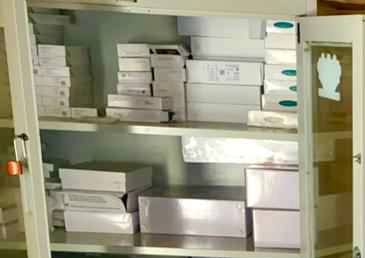By; ALEX UANGBAOJE, Kaduna Health facilities across Chikun, Igabi, Kaduna North, and Kaduna South local government areas are witnessing signi
By; ALEX UANGBAOJE, Kaduna
Health facilities across Chikun, Igabi, Kaduna North, and Kaduna South local government areas are witnessing significant improvements in infrastructure and service delivery under Governor Uba Sani’s administration.
However, persistent shortages in manpower, erratic power supply, and irregular family planning commodities continue to undermine maternal and reproductive health services.
These findings emerged during a media field visit supported by Pathfinder International under the Smart Advocacy Strategy in Action (SASA) project, implemented by the Maternal Accountability in Kaduna Initiative (KADMAM).
The team visited General Hospital Kawo, General Hospital Rigasa, PHC Mando, Zakari Issa PHC, and Sabon Tasha PHC, where health workers commended the state government for massive renovations and improved working environments but raised concerns about operational gaps that still affect service delivery.
At General Hospital Kawo, once in a deplorable state, staff now fondly refer to the facility as “Mini London” after a complete facelift by the state government and the Central Bank of Nigeria’s Staff Cooperative.
Despite this transformation, the hospital operates with only six doctors serving several communities, while irregular power and limited laboratory staff hinder consistent service delivery.
At PHC Mando, Officer-in-Charge Murjanatu Muhammad Rabiu noted that deliveries are free only for women listed under the Expanded Reproductive and Routine (ERR) program, while others must provide delivery materials.
She said frequent shortages of family planning injectables often force women to buy from unregulated vendors, exposing them to fake products and unwanted pregnancies.
In Rigasa Hospital, Nurse Medinatu Abidoye appealed for improved infrastructure and the regular supply of drugs used in managing contraceptive side effects.
Meanwhile, providers in Zakari Issa and Sabon Tasha PHCs said that while acceptance of family planning methods is growing, inconsistent commodity supply, myths, and side effects still hinder uptake.
The media team after their assessment made a strong call on the Kaduna State Government to directly invest in the procurement of family planning commodities and essential consumables, stressing that all current supplies come from development partners.
They warned that relying solely on donor support is unsustainable and called for increased budgetary allocation for family planning and maternal health, as well as consistent supply of gloves, cotton wool, disinfectants, and other consumables to reduce the out-of-pocket expenses faced by clients.
Despite these challenges, health workers commended the government’s efforts in revamping the health sector, noting that the progress achieved so far can only be sustained through stronger state investment in manpower, logistics, and commodity security.
With the right support and consistent government commitment, they believe Kaduna’s maternal and family planning services can become a model for reproductive health delivery across Nigeria.




COMMENTS